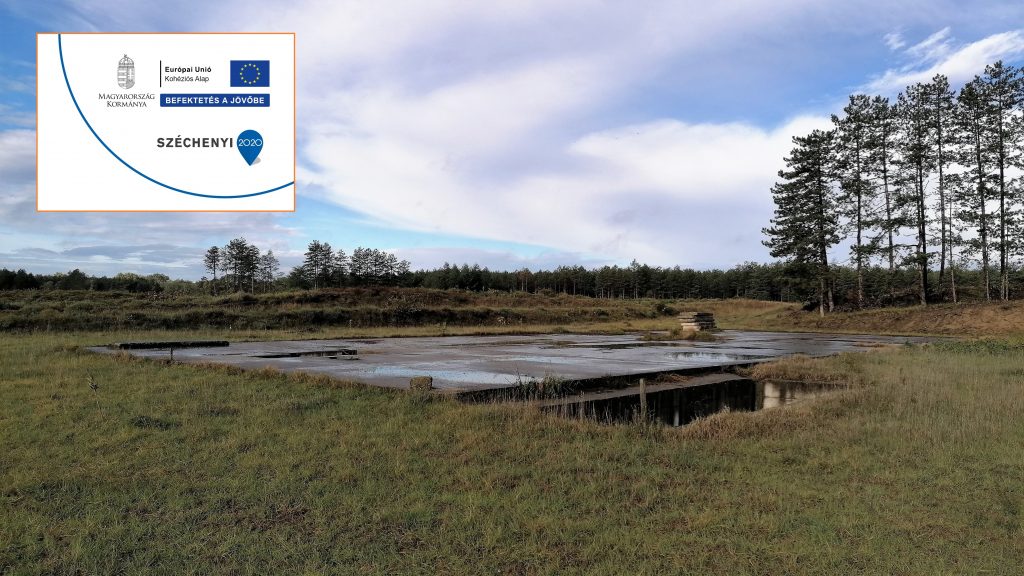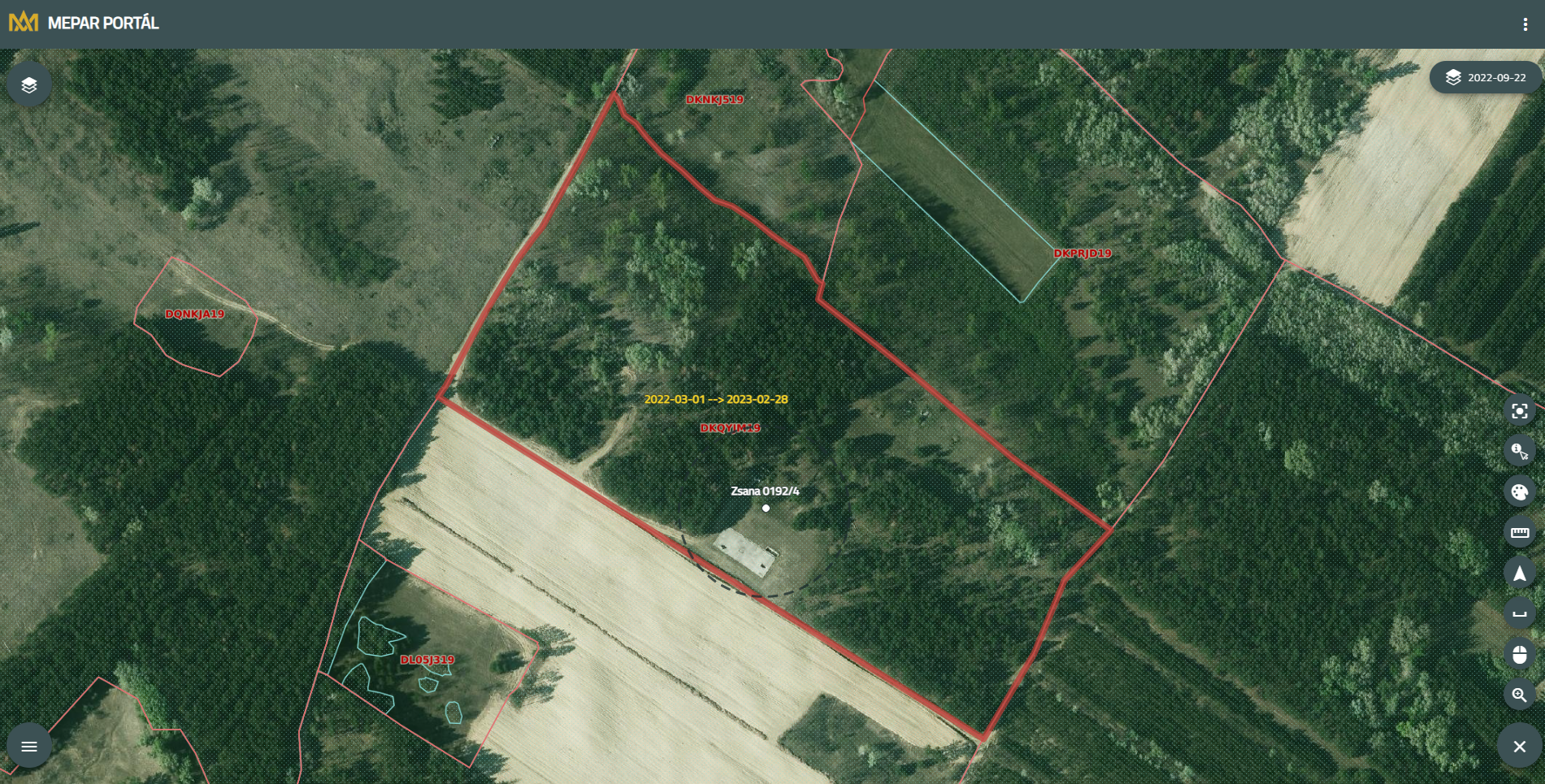The https://english.atlatszo.hu use cookies to track and profile customers such as action tags and pixel tracking on our website to assist our marketing. On our website we use technical, analytical, marketing and preference cookies. These are necessary for our site to work properly and to give us inforamation about how our site is used. See Cookies Policy
This is how a billion forints went missing in an EU-funded geothermal project
A HUF 2.5 billion EU grant was requested and received for the construction of a HUF 5 billion geothermal heating system – a thermal well and associated heat centres – by a consortium of a project company formed with the involvement of the local government and the National Development Programme Office in Zsana, a small village in Bács-Kiskun County. However, the other half of the budget was not available at the consortium for the KEHOP application, it was proved by a sham loan agreement. Receiving HUF 1.2 billion advance of the EU grant, significant amounts were transferred from the project company to the owners’ affiliated companies and private accounts. Although a public tender was launched as the completion deadline approached, the heating system was not built, and the advance payment does not appear to have been spent on the geothermal project. Hungarian authorities are investigating suspected budget fraud.
In 2017, the Ministry of National Development published a call for proposals under the code number KEHOP 5.3.2-17 “Meeting local heating and cooling demand with renewable energy sources” for district heating companies “in order to implement modern heat generation systems based on renewable energy sources”. The projects that met the conditions of the call were awarded non-repayable grants of between HUF 20 million and HUF 2 billion 500 million, predominantly EU-funded, part of which was paid as an advance to the selected applicants.

The applicants have committed to finance the project from their own resources in addition to the grant received. The grant application could be submitted by the NRP National Development Programme Office Nonprofit Ltd. as consortium leader and the eligible applicants as members.
The largest grant applied for and received for the construction of a geothermal heating system in Zsana
In response to the call of the Ministry of National Development, in June 2017, the state-owned NFP National Development Programme Office Nkft., as consortium leader, and the private company Zsana Geoterm Kft., based in Kiskunhalas, as consortium member, submitted their application for the project “Geothermal Energy Utilisation in Kiskunhalas and Zsana”. The total cost of the project was HUF 4.8 billion, of which the requested grant was HUF 2.5 billion. The planned budget was later revised to HUF 5 billion with no change in the funding request.
In 2017, the Ministry of National Development awarded the requested HUF 2.5 billion to a consortium of NFP Nkft. and Zsana Geoterm Kft. Of the amount awarded, HUF 2 billion 225 million was EU funding and the remaining HUF 275 million was domestic funding. The NFM KEHOP Managing Authority signed a contract with NFP Nkft. in November 2017, the project ID was KEHOP-5.3.2-17-2017-00008. The beneficiary undertook to implement the project on a property located at the outlying area of Zsana, and to operate it during the maintenance period.
The project was intended to create a thermal well and a geothermal heating plant, including a thermal water production and recovery well, together with associated water facilities, a transmission network and consumer heat centres. Under the grant contract, all this was to be completed by June 2019, with a maximum advance payment of HUF 1.271 billion.
In addition to the grant contract, a consortium agreement was signed in October 2017 between NFP Nkft. and Zsana Geoterm Kft. as a consortium member. According to the consortium agreement, Zsana Geoterm was to be responsible for the construction of the facilities, while NFP Nkft. undertook project management and administration tasks for HUF 43 million.
Top billionaire’s company provided one-day loan to prove self contribution
According to the consortium agreement, Zsana Geoterm had committed to provide HUF 2.4 billion of own resources, the availability of which had to be certified by the company no later than the first payment request. This could be done by means of a binding offer of financing from a credit institution or a financial company, or by means of a loan or credit agreement. To obtain this, Zsana Geoterm submitted a loan application to Bohemian Financing Zrt. in November 2017.
According to Bohemian Financing Zrt.’s debt rating policy, the debt rating must be carried out for the first time before the decision to take a risk, for which a business plan suitable for credit assessment is requested. However, in the case of Zsana Geoterm Kft., the existence and enforceability of the collateral offered by the debtor were not verified due to a right of collection on the debtor’s bank accounts. Instead of evaluating the business plan, Bohemian requested that Zsana Geoterm appoint a person of its choice as co-director and that the loan granted by it be repaid immediately after Zsana Geoterm had provided proof of its own resources.
This is exactly how it happened: the Bohemian delegate was co-managing director of Zsana Geoterm for less than a week in December 2017, during which time a loan agreement for HUF 2.5 billion was signed between the two companies, which was transferred to a bank account opened by the managing director delegated by Bohemian Financing, and then paid back to the lender on the same day as an “early repayment”, and the bank account and the managing directorship of the Bohemian delegate were terminated immediately. Thanks to this series of overnight transactions, Bohemian Financing was entitled to a disbursement commission of HUF 25 million and an early repayment fee of HUF 50 million, which was later paid by Zsana Geoterm to the lending company from the advance of EU subsidies received.
This was the loan agreement which, in the view of the prosecution and the court, was only ostensibly suitable for proving the existence of the own contribution, and by which Zsana Geoterm Kft. misled the tenderer and the NRP National Development Programme Office, as the applicant for the subsidy, in order to obtain the HUF 2.5 billion subsidy without entitlement.
Following an investigation by the National Tax and Customs Office, the Bács-Kiskun County Prosecutor General’s Office brought charges in the case, firstly against the managing director of Bohemian Financing Zrt.: Dániel Jellinek admitted without trial that the loan agreement could be viewed as an aid to the fraud committed by Zsana Geoterm. It is presumably for this reason that the Kecskemét General Court provisionally exempted the businessman from the consequences of his criminal record. More information on this judgement can be found here:
Hungarian billionaire quietly sentenced by court in EU tender fraud case
Atlatszo has learned that the Kecskemét Court of Justice convicted Dániel Jellinek in June 2022 as an accomplice in a budget fraud case, and at the same time exempted the businessman from the legal consequences of his criminal record.
HUF 1.2 billion in advances transferred but not spent on the project
With the proof of own contribution obtained as detailed above, Zsana Geoterm became eligible for the state aid applied for. On the basis of their application for a grant advance, the Ministry of National Development transferred HUF 1 billion 228 million to the company on 15 December 2017, and the National Development Programme Office NKft. also received the HUF 43 million project management fee.
However, Zsana Geoterm did not use the advance payments for the purposes specified in the grant contract, but transferred them to other companies and individuals:
- HUF 460,6 million to Halas-Geoterm Kft.
- HUF 323,7 million to Intercompany Financing Zrt. as a security deposit
- HUF 125 million as a loan to István Károly T.
- Károly K-I. and István Károly T. received HUF 70,2 million each as wages
- HUF 89,7 million to the NAV in the form of employers taxes
- HUF 95,3 million to the Imre Law Office, acting on behalf of Zsana Geoterm
- HUF 76,5 million to Bohemian Financing Zrt. as a loan fee
In addition to those listed above, payments of lower amounts were also made to the Municipality of Zsana, as well as to some smaller companies and other individuals.
One and a half years later, in May 2019, the Managing Authority of the KEHOP carried out an on-the-spot audit in Zsana, during which it was established that the construction of the project, which was in principle already completed, had not even started. In August, a payment notice was sent to Zsana Geoterm requesting re-payment of the HUF 1.228 billion advance payment and interest. Zsana Geoterm did not pay, and enforcement found only HUF 2.4 million in the company’s bank account.
A German contractor won the public procurement procedure, but they didn’t build anything either
Zsana Geoterm Ltd. was founded in September 2009 by Halas-Geoterm Energiaszolgáltató és Kereskedelmi Kft. (99%) and the Municipality of Zsana (1%), based in Kisunhalas, with HUF 10 million in share capital. The company was declared dissolved by the Company Court of the Kecskemét General Court in 2020 and ordered its compulsory liquidation. Halas-Geoterm Kft. was founded in 2007 by private persons, who later became the managing directors of Zsana Geoterm Kft.
Halas-Geoterm Kft. and Zsana Geoterm Kft. are now both in compulsory liquidation. The owners of Halas Geoterm Kft. are Károly K-I., István Károly T., and Gyula István Gál. K-I. and T. were also involved in the case as beneficiaries of the large payments made by Zsana Geoterm. According to the title deeds, the 6,000-square-metre plot of land, classified as a farm and field, which was earmarked for the geothermal investment, is owned by Károly K-I. and Gyula István Gál.
Intercompany Financing Zrt., which received HUF 323 million from Zsana Geoterm as security, is also owned by Dániel Jellinek. The businessman told Átlátszó that the amount submitted by Zsana Geoterm was to cover a private loan of the same amount made by K-I. and T. in the summer of 2018, and that, to his knowledge, it was not related to the use of the subsidy.
Yet it appears that the ultimate owners of the project converted a significant part of the grant advance into a private loan – a highly unusual practice, according to the experts we interviewed, and usually the other way around: business owners offer their private assets as collateral in exchange for operating loans to their companies. Jellinek has not been charged by the prosecution in this part of the case.
We do not know whether the owners of Zsana Geoterm Ltd. wanted to build the geothermal heating plant at all, or whether they were only after the advance payment of the subsidy, because we could not reach Károly K-I. to ask him. In any case, in October 2019, the Ministry of Innovation and Technology withdrew the grant contract as a result of the findings of an irregularity investigation into the project.
In the same month, the BAON news portal in Bács-Kiskun county published a story with a promotional flavour about the planned project, stating that the contractor had already been selected in an EU public procurement procedure, and that the winning company was the Karlsruhe-based Geotermal Group Germany GMBH. According to BAON, Zsana mayor Miklós Visnyei said at the time that all the necessary permits had been obtained and that construction could start in Zsana in a few weeks, and that the hot water from the ground could be used in a year’s time.
We contacted Geotermal Group Germany GMBH by email and by phone to find out why the project had been cancelled, but they had not replied by the time of writing and could not be reached by phone. The National Development Programme Office NKft. also did not respond to our queries on the matter.
HUF 1 billion concrete slab on the outskirts of Zsana
We could only reach Gyula István Gál, one of the managing directors of Zsana Geoterm Kft., who said that he was not involved in the project and had no insight into the matter. “As a managing director, I was brought into the company so that if something should happen to my managing partner, the company would not stop, I would be a signatory to the company. I was also interviewed by the Criminal Investigation Directorate of the Hungarian Tax Authority, but I did not receive any salary, fees or dividends during the operation.”
He was aware of the EU tender and the advance payment, but he does not know how it was used exactly. He remembers that preparatory work was carried out at the expense of the tender: landscaping, a paved road, an electricity network with transformer, a special concrete sludge storage tank at the site of the injection and extraction wells, and a pipe connection to receive drilling equipment. An office building with a parking lot has been purchased adjacent to the planned trail in the nearby town of Kiskunhalas, and official water and other permits have been obtained for the project. Gyula István Gál has no information on the value of the investments made or the costs incurred.
A reporter of Átlátszó visited the project site at the end of September this year. There are no signs or other indications as to where the billion-euro project would be located on the outskirts of Zsana. We tried to find the parcel number using Google’s route planner, but the navigation says the site is two and a half kilometres from the road to Kishunhalas. The road here is not sandy, it looks as if it has been reinforced with something, with only a few puddles indicating that it has rained. Pine trees surround the entrance. The road itself is heavily ribbed, so that the material used as a road base, crushed stone, is visible. No people or cars, but more deer can be seen along the way.
The forested bypass leads through a gully, with deep sand, easy to get stuck. Eventually we reach our destination. To be more precise, the sand track leads 200 metres from the site which can be reached on foot, through the newly planted pine trees. A huge concrete slab shows the location of the investment. Two of its hatches are filled with water, a farmhouse has been demolished nearby, and the sand has been removed from under the pine trees. Deer footprints are everywhere, the concrete is uniform like a foundation. There’s no sign here either of why concrete was laid in the middle of the Zsana wasteland.
Our on-site footage of the project in September 2022
Zsana Geoterm’s owners and subcontractors have established geothermal project companies elsewhere
Miklós Visnyei, the mayor of Zsana, told us that the project had come to nothing, and that “the owner is in custody because it seems that the money was stolen. I’m trying to get the project back on its feet on another thread, to restart it, I haven’t given up on it, but I can’t continue it with them”.
The municipality has suffered a loss of 2 million 600 thousand forints for its share in Zsana Geoterm Kft. Nothing has been built on the land earmarked for the project, and it has not yet been decided with whom the project will be restarted, the mayor told Átlátszó.
It is interesting to note that the owners and subcontractors of Zsana Geoterm Kft. have also tried to launch similar projects elsewhere, for example in the company Geo-Development Kft., which was established in 2018 with the participation of the municipality of Andornaktálya, a small village in Northern Hungary, and is now in liquidation.
The mayor of Andornaktálya, Zsolt Barczi, told us that the project was launched under the previous mayor, László Vámosi, but no concrete steps were taken in the matter, apart from a needs assessment. Heating using thermal water was also planned here, but the preparatory talks have been terminated. “Residents were assessed and interviewed to see who would like to be connected to hot water heating, but I don’t know the details of the case and none of this has materialised”. We also called László Vámosi, but he deflected our enquiries, he doesn’t remember.
According to the latest, 2021 report of the EU’s anti-fraud office (OLAF), Hungary continues to be above average in terms of fraud with EU funds. The situation is similar to previous years, with Hungarian figures being several times higher than the EU average. Hungary could become the first EU Member State to lose significant EU funds under the rule of law mechanism if it fails to implement a rigorous anti-corruption package.
Written and translated by Tamás Bodoky, the Hungarian version of this story is available here. Photos and local reporting by Csaba Segesvári / Atlatszo.









